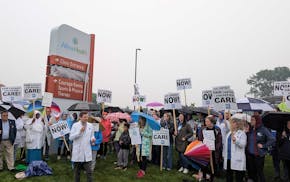In an interview several years ago, Nobel laureate Edmund Phelps shared with me his perspective on having a job.
"Work is the experience of life," he said. "To participate in the economy is essential to being part of society's central project: Working together to do stuff."
Phelps took seriously the common search for both purpose and a paycheck at work. The theme informed his vision of encouraging an economic culture that allowed for mass flourishing and rewarded labor.
The late Studs Terkel brought that search alive in his 1970s masterpiece, "Working." Terkel interviewed workers in ordinary occupations and recorded the hardships and dignity in their work.
"It is about a search, too, for daily meaning as well as daily bread," he wrote, "for recognition as well as cash, for astonishment rather than torpor."
A new book that also explores work, purpose and meaning from various angles also quotes Terkel. "Is Your Work Worth It? How to Think About Meaningful Work" is by professors Christopher Wong Michaelson of the University of St. Thomas and New York University and Jennifer Tosti-Kharas of Babson College.
Michaelson recently discussed the book at a Navigate Forward breakfast event, and his remarks and questions resonated with an audience of professionals. Navigate Forward helps executives in transition figure out their next stage. Many at the breakfast are looking for their next chapter, eager to keep using their knowledge and experience, while at the same time doing something meaningful and fun.
Michaelson writes in the book that for almost two decades, he has asked students — ranging from undergraduates to seasoned executives — three questions:
- One year out of this program, what do you think your job will be?
- What kind of job contributes the most to general well-being?
- Practicality aside, if you could be doing anything 10 years from now, what would it be?
There are no right answers, of course. Questions like these are meant to encourage people to think about trade-offs, look at the long-term of work and life and take seriously the journey to find meaningful work.
"Doing work that is worthy — of ourselves or to society, paid or unpaid, essential or entertaining — may be one of our most important opportunities in life to contribute something of value to a world in which there is no end of work to be done," Michaelson and Tosti-Kharas' book concludes.
Thing is, personal finances become easy once you land on the "why." The money supports the purpose embedded in your work.
Chris Farrell is senior economics contributor, "Marketplace"; and a commentator for Minnesota Public Radio.

Bushel Boy, Minnesota's local tomato grower, sold
After 60 years, federal cuts shutting down Job Corps center in St. Paul

In a first, Minnesota doctors walk their own picket line, then hustle to see patients
It's harder to find a job this year, especially a corporate position

